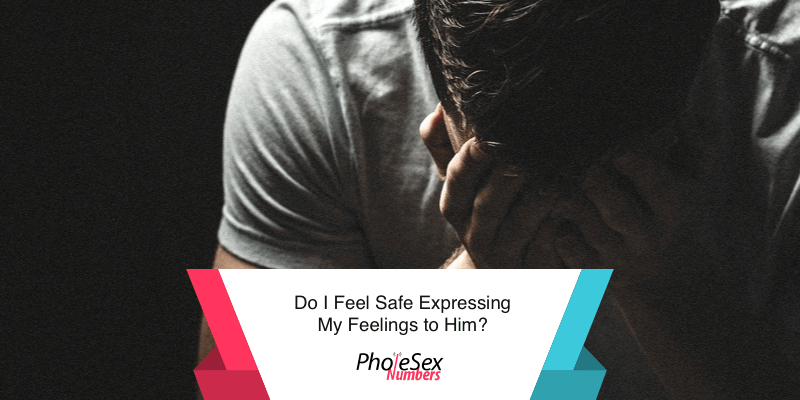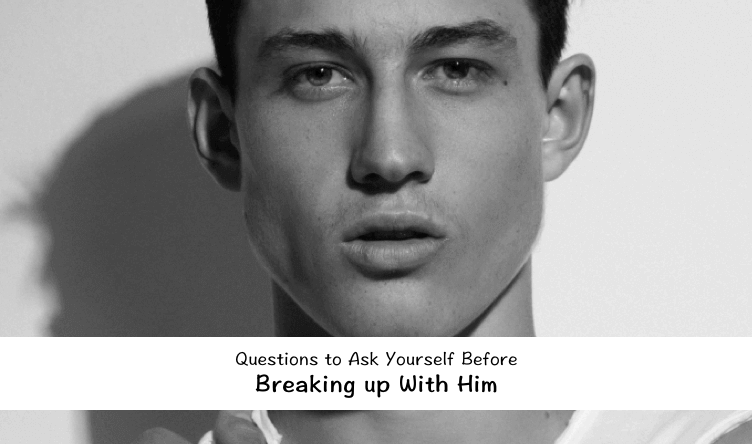Ending relationships is never an easy thing to do, but sometimes problems build up over time, and if they aren’t addressed, people snap in times of pressure, like during an argument. Deep regret from a sudden breakup could be avoided with a little reflection.
If you can repair the parts of a relationship that need attention, it will save both of you many heartaches and help both partners in a relationship grow. Below we have a set of questions to help you reflect on your relationship and decide more confidently whether or not to break up with him.
Question 1: Have I Made My Needs Clear or Did I Assume He Knows?
You may have heard the phrase “I can’t read your mind” said in arguments between couples before. It’s a very true statement that points to a common problem in relationships. Lack of clear communication in a relationship can often be confused with a lack of romance as we think that a partner magically knowing exactly what we need means they are “the one”.
Blame this on movies and fairytales if you like, but the idea that he “just knows” when to bring you flowers or take you on a magical date is impractical and doesn’t consider just how complicated life has become for all of us. To be truly happy, you need to communicate your needs, and he needs to do the same. If both of you are hoping for mindreading to solve your relationship problems, nothing will get better.
To understand both your needs and your partner’s needs, this fun quiz on the 5 love languages can help you figure out what you need to feel loved and how you express your love. This is a great way of understanding what makes each of you tick before trying to have a respectful, kind conversation about what has been making you feel unloved.
By recognizing what he has tried to do in his own love language (his way of expressing love) you can recognize his efforts and explain what makes you feel even more deeply loved. Once you fully understand each other’s needs, there should be less miscommunication and more earnest efforts to express your love for each other in ways that you each understand and feel deeply. Remember, communication is a constant need in a relationship, not one once-off conversation.
Question 2: Does He Respect My Interests?
Being in a relationship should not mean that you have to give up everything you were interested in doing before it began. This is true for both you and him; you should both have the freedom to pursue interests and hobbies you love. If you have given him the respect to continue enjoying hobbies even if you don’t like them, you have set a great example in the relationship.
This respect needs to be shown to you too. If he listens and cares about the fact that his attitude is hurtful, you can turn this around, but if he insists your interests are not acceptable or even mocks you for it, you should seriously consider only keeping what makes you a happier person; him or your passions.
Question 3: Are We Building a Future Together?

There are many kinds of relationship structures that don’t include marriage, so this question is not asking if you think there will be a proposal soon. This is asking about your life goals and what you want to achieve by forming a life together.
Do you want to buy property together? Do you want to start a business together? Do you want to support each other while you each invest separately and build a shared empire? Do you dream of having children together, or do you already have children who you want to support and care for together? Whatever your goals might be, if you are building a life together with shared future goals, it can be important to reflect on what those goals are and make sure your actions are aligned as well as his.
Check with him and see if he remembers what the goals are and if you both share a common vision and want the same things for your future together. If your dreams have changed or if he wants something different, it may be time to walk on separate paths, but this decision should be spoken about deeply and carefully before making that choice.
It may just mean a few things will need to change for you both to have the life together you hope for in the future, and communicating what that looks like for you now sets a more realistic and fair context for both of you.
People grow and change over time, so there should always be constant communication to make sure you still want the same things together, or if you maybe want different things, together or separately.
Question 4: How Does He Get Along With My Friends and Family?
If he gets along well with the most precious people in your life, there is a good chance he also only wants the best for you and cares for you deeply. If this is the case, any rough patches should be survivable. Think carefully about what causes your difficult times and how better communication or more effort could help build a better relationship.
On the other hand, if he clashes badly with your most cherished loved ones, that is a serious indication your views of the world are not aligned. A relationship together will always be extremely difficult if you are polar opposites and can’t find respect or middle ground.
If he can’t get along with the people you love most, you will have to evaluate why and who really has your best interests at heart before you choose between him and your loved ones.
Question 5: Who Else Will Be Affected by the Breakup?
If you are in a long-term relationship and there are children involved, breaking up is a much more complicated process. This is especially true if your finances are joined together or if you are dependent on your partner. The considerations in this situation are still whether you and your partner will be happier together or apart.
If you will be happier apart and you will be able to care for yourself and your children, then it’s better for them to have two separate homes with two happy caregivers than one miserable environment filled with fighting and difficulty.
Keeping the end of a relationship amicable is very important for children so that they can still have contact with the people important to them, so whatever you choose for your own happiness should also factor in how peacefully the break up can be, or just how much better life would be after the relationship ends.
Question 6: Do I Feel Safe Expressing My Feelings to Him?

In a healthy, respectful relationship, it’s safe for both parties to express their positive and negative feelings without fear of anger, insults, or embarrassment. If he doesn’t take your feelings seriously, gets angry, or tries to make you feel shame for not being happy about his actions, there is a serious concern here.
It doesn’t mean the relationship is dead in the water, depending on why he acts negatively in response to you being vulnerable to your feelings. You could ask what he feels when you express unhappiness about something he has done. If he feels like you’re saying he is a terrible person, he’ll naturally react badly, even if this is not what you are trying to say.
Try explaining to him that you expressing dissatisfaction in his actions is not the same as being dissatisfied with his entire personality, for example, “When you do [problematic action] it hurts me, but that doesn’t make me see you as less of a good person, I just wish you didn’t do [problematic action].”
If you think he could calmly consider and understand your point of view when phrased this way, there is still hope for improving your communication with each other and saving the relationship. If it is not safe for either of you to talk about negative issues, the natural issues that exist in every relationship will only get worse over time.
Question 7: If I’m Unhappy, Why Have I Stayed With Him This Long?
If you have stayed in a deeply unhappy relationship, it can mean something far more complicated is going on emotionally and psychologically. You should think carefully about what makes you stay with someone, especially if treating you badly. It may be due to manipulation if you are still together.
If he makes you feel unlovable, stupid, trapped and in danger of him physically harming you, the relationship needs to end. To leave him safely, try to reconnect with your friends and loved ones so that they can help you leave him. Even if you do not have friends or family to support you, there are women’s shelters that can help and provide assistance in getting you back on your feet after leaving an abusive relationship.










No comments yet, leave yours!